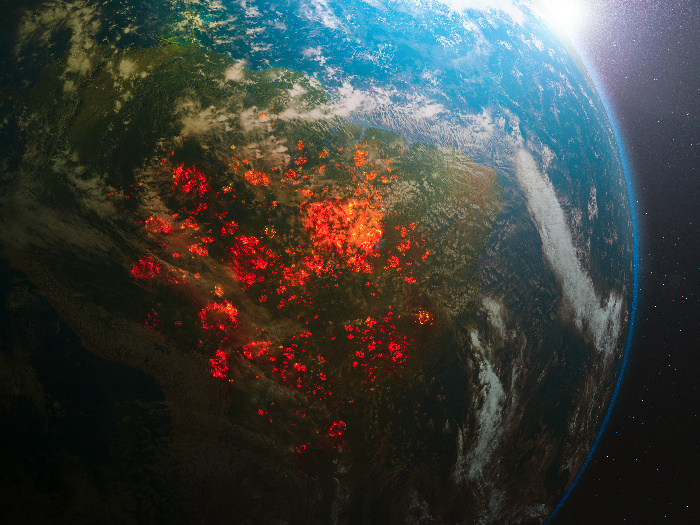A game model designed by scientists has shed light on the unfortunate realities of climate change and global action against it. According to what was observed in this game, rich countries do too little, too late to mitigate climate change, and mostly so at the cost of their poorer counterparts. On the other hand, poor regions seem rather willing to fulfill this lack of effort. These countries also tend to be hit harder by the harsh consequences of climate change.

Harsh realities of climate change. Photo Credit: Shutterstock
The new research paper analyses the consequences of a game about climate change, which involved 410 students from the Universities of Hamburg and Kiel and was designed by this team of researchers. The players were divided as rich and poor countries and were given money to spend in the game to help efforts against climate change. Representatives of poor countries were given €20, while richer countries received €40. To this, they could also add money earned from harvesting.
With 20 rounds of play to mitigate climate change, each participant could put in €2 or €4 towards the collective effort. Representatives of poorer countries were also allowed to migrate to richer locations. It was observed that richer countries did not offer to contribute to the climate change effort. Even when it came to blocking migrants from poorer countries, many depended on the efforts of others instead of adding in their share, thus achieving Nash equilibrium in all scenarios. In game theory, Nash equilibrium is a state achieved where a unilateral change of strategy will not achieve results until the strategies of others remain unchanged.
“As long as there is hope that others will raise money while you save, some people will obviously run the risk of losing in the end”, says Manfred Milinski, Director of the Max Planck Institute for Evolutionary Biology. [1]
By the end of 20 rounds, the climate change goals of most groups were not achieved. This was despite a reserve of resources available with the richer countries. However, the poor were eager to compensate for this despite their financial situations.
The study is published in the Nature Climate Change journal. [2]
